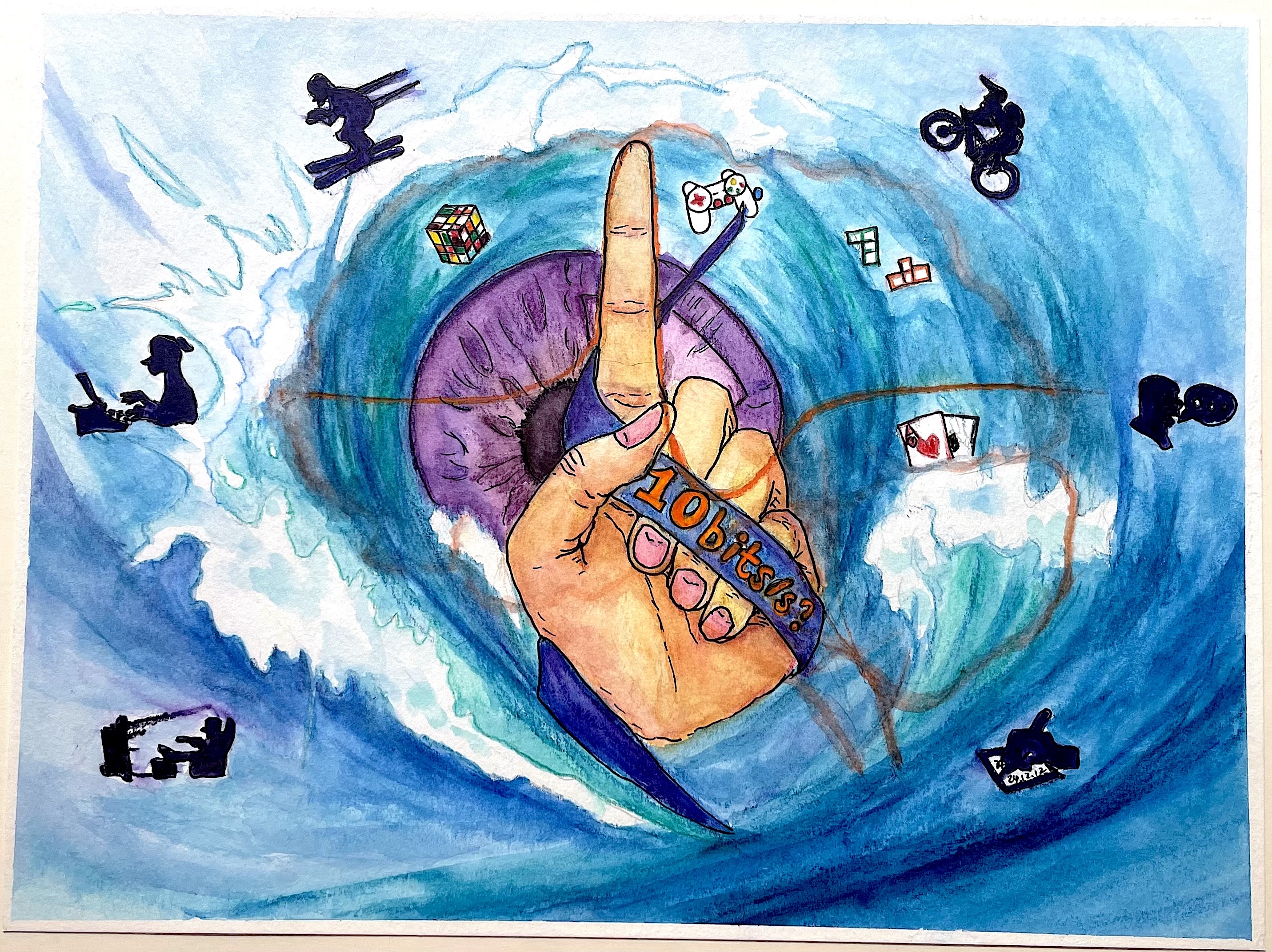The unbearable slowness of being: Why do we live at 10 bits/s?
Published in Neuron, 2024
Recommended citation: **Zheng, J.** and Meister, M. (2024). The unbearable slowness of being: Why do we live at 10 bits/s? Neuron. https://doi.org/10.1016/j.neuron.2024.11.008

Created by Jieyu Zheng during the drawing and painting class PVS062 2024.
Abstract
This article is about the neural conundrum behind the slowness of human behavior. The information throughput of a human being is about 10 bits/s. In comparison, our sensory systems gather data at $\sim 10^9$ bits/s. The stark contrast between these numbers remains unexplained and touches on fundamental aspects of brain function: what neural substrate sets this speed limit on the pace of our existence? Why does the brain need billions of neurons to process 10 bits/s? Why can we only think about one thing at a time? The brain seems to operate in two distinct modes: the “outer” brain handles fast high-dimensional sensory and motor signals, whereas the “inner” brain processes the reduced few bits needed to control behavior. Plausible explanations exist for the large neuron numbers in the outer brain, but not for the inner brain, and we propose new research directions to remedy this.
Links to the paper
Arxiv: includes the first draft (v1) and the latest preprint (v2, same content as on Neuron)
Alphaxiv: includes the discussions about the first draft and author responses. The comments are still being monitored by the authors.
Talks
25-04-11 Chen Institute Workshop on Cross-Species Modalities in Cognition and Behavior
25-10-11 Explore Caltech 2025 a 10-minute talk to the general public.
Selected Media coverage
Endorsed by interviews with the authors
Caltech Magazine May 12, 2025. The Remarkably Slow Speed of Thought
BBC Global News Podcast Dec 24th, 2024. An interview with Prof. Meister, starting at 20:05, and BBC Newsroom, starting at 19:25.
Caltech News Thinking Slowly: The Paradoxical Slowness of Human Behavior
Mediapart À propos de l’insoutenable lenteur de l’être
New York Times The Speed of Human Thought Lags Far Behind Your Internet Connection, Study Finds
Scientific American The Human Brain Operates at a Stunningly Slow Pace
The Transmitter Explaining ‘the largest unexplained number in brain science’: Q&A with Markus Meister and Jieyu Zheng
Der Spiegel Warum können wir eigentlich nur an eine Sache zur selben Zeit denken?
Aviation Week Why Managerial Norms Are Changing To Match New Technologies

Created by Jieyu Zheng. Selected for display by the Caltech Science and Art Contest (2022).
More coverage (in different languages)
Discover first coverage on our preprint: The Information Entering Our Brains Dwarfs The Amount Coming Out — Why? and on the published perspective : When It Comes to Thinking, Our Brains Are Surprisingly Slow
The Times Wi-fi is faster than your ‘ridiculously slow’ brain
Yahoo News You’ll Laugh When You Hear How Many Bits Per Second the Human Brain Processes… Once Your Sluggish Human Brain Finally Comprehends It, That Is
环球科学 人类一生能获得的知识存在上限,科学家已经算出来了
Sabine Hossenfelder Researchers Warn of “Musk Illusion” That Brain Can be Sped Up
